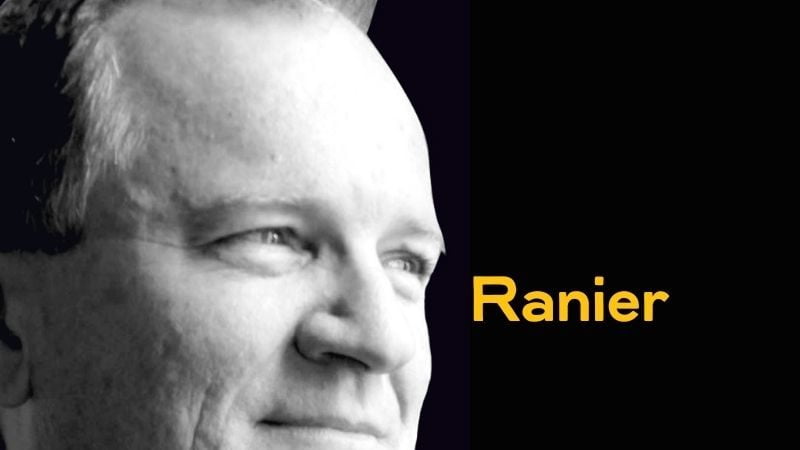It’s easy to think that the Passport Papers are primarily revelations that take us into the secretive, slimy world of the market for passports, where authorities collude with princes and oligarchs to sell that distinctive product: an authentic fake, where real citizenship is sold under false pretences on all sides, to the point of undermining the very meaning of citizenship for everyone else.
But the revelations are also about what has long been in plain sight. If we only focus on the secrets, the revelations might seem only to confirm what we have long suspected: the standards were purposely lax; in many cases, they were not fulfilled; the applicants found it easy to speak to a sympathetic ear right at the top, Joseph Muscat himself if necessary.
The Passport Papers revelations aren’t just about what was said and sold in secret, though. They’re also about what we were told and sold in public.
We were told that selling passports was about importing talent. It was about getting on board the economy of the future. It would make us cosmopolitan. Oh, and the reason it wasn’t on Labour’s electoral programme in 2013? The idea came later.
Cosmopolitan, eh? When Albert Einstein described himself as a citizen of the world, what he meant was that he identified his interests with the wellbeing of the entire planet and the common good of humanity as a whole. If the kleptocrats, money launderers, or wanted men who bought a Maltese passport ever think of themselves as citizens of the world, what they must mean is that they have found a way to make entire countries identify with their own personal interests.
Henley and Partners tell us that they think the world needs more passport sales. They don’t mean the world should lose its borders and let the whole of humanity move freely. Their business is based on the retention of borders and close scrutiny of anyone who crosses — apart from their clients, who buy themselves a pass.
Far from the economy of the future, this is the secularised version of evading the clutches of the law in a church. It’s a return to the Middle Ages.
Obtaining havens for their suspect money, these oligarchs also find havens for themselves. These people are often an appendage of an oppressive regime whose actions are rendering our world more unsafe. Countries that sell passports end up colluding in helping an unjust, unsafe world perpetuate itself. Or else they help passport buyers defy the laws of their own States.
The passport trade also undermines a country’s allies. By granting passports to oligarchs who might be subject to international sanctions, the impact of those same sanctions is subverted.
These are not abstract considerations. Malta’s passports are bought by people from China, Russia and Saudi Arabia, and also from India, Turkey, Israel and elsewhere. The involvement of Russia, Turkey and the Gulf States in our immediate neighbourhood, not least Libya, is destabilising not just peace in the region but our own economic and commercial interests.
The idea, therefore, that objecting to passport sales is the mark of a lack of realism is the opposite of the truth. It’s those who think that selling passports is a free lunch who show themselves unable to see a pact with the devil when it’s waved before their noses.
This brings us to how Malta — its leaders and people — was sold on this scheme.
Sources close to Lawrence Gonzi’s government said it was approached by Henley and Partners before the 2013 election. Gonzi turned them down.
In the revealed emails, Muscat is described as “young” and “savvy”, which looks like patronising code for “impressionable” and “pliable”, or simply “willing” for what the pact entailed.
The emails reveal no evidence that what Muscat told us about the scheme — it would import “talent” — ever materialised. All the evidence is that the “talent”, such as it was, might have enriched Muscat himself (I mean, of course, in experience and warm memories, Muscat having been willing to meet so many of them personally). But the passport applicants were systemically told how to keep their actual connection to Malta to a minimum.
And there’s more circumstantial evidence that it’s likely Muscat knew and approved the scheme before 2013. Why is this significant? It reveals the arc of the passport sales narrative.
In 2013, Muscat didn’t dare put the scheme on Labour’s election platform. He was afraid of strong principled objections even from his core vote. Within a year, he was selling it as the economy of the future. He managed to co-opt many initial objectors by getting them to see it as a free lunch.
Today, however, the justification is that the scheme has seen us weather the pandemic. In seven years, we’ve gone from boasting it’s avant-garde to finding excuses for it as a providential welfare prop.
As it happens, even this excuse seems fake. The Opposition says the figures don’t add up. The money ploughed into the economy over the last year virtually matches the rise in national debt. The money from passport sales seems to have gone, instead, into the cronies’ feeding trough.
Back in 2013, so many thought they were throwing off the inhibitions of a musty way of doing things that was holding us back. Perhaps some real mustiness was indeed there. What cannot be doubted, however, is that what we signed up for was not a fresh innovative, future-oriented way of doing things unencumbered by irrational dogma.
We chained ourselves to an economy of, and run by, authentic fakes: fake energy security, fake hospital deal, fake citizenship-by-investment scheme and, it increasingly seems, crooks disguised as public servants.














What a sad but very true picture
Perhaps its time that the EU will not /should not allow Henley & Partners to operate in the EU.
Excellent analysis of what is in essence a sham